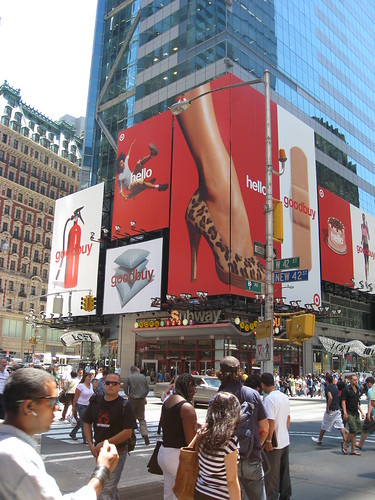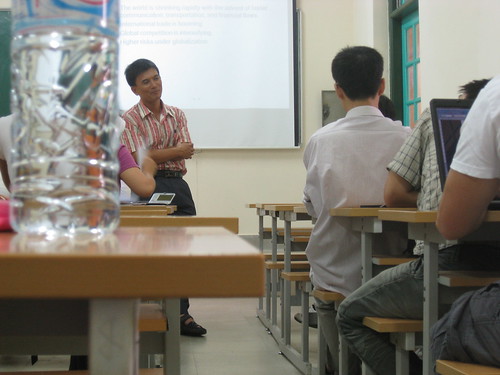At the moment a presentation and a video by Byron Sharp about the science of marketing are making rounds in the plannersphere. They are based on Sharp’s book “How Brands Grow. What marketers don’t know“. About this book Martin Weigel says:
If you want to buy one book this year to help you (or the marketer in your life) be a better a marketer, don’t buy all the data-devoid stuff that makes us feel cutting edge, or massages our egos. I suggest you read this one. It is full of proper data and analysis. And full of the stuff that as Sharp says, marketers should know, but many clearly don’t. Like double jeopardy, retention double jeopardy, the law of buyer moderation, natural monopoly law, etc.
It’s easily the most useful, challenging and illuminating book about marketing I’ve read in years.
I haven’t read the book yet, but after this enthusiastic review it is now lying on my desk. From what I can see, a lot of it is based on Andrew Ehrenberg’s work, which is not surprising, given that Sharp is at the Ehrenberg-Bass Institute. For those of you who don’t know Ehrenberg, who passed away last summer: he was the sage of marketing science, looking for and finding consistent marketing laws, most notably the Double Jeopardy law. He also wrote some interesting papers about advertising effects and a quite interesting comment in Strategy+Business called Marketing: Are you Really a Realist (free registration).
As shown in his work Ehrenberg is a passionate advocate of using the methods of physics in social science:
Even in a field supposed to be dominated by people’s impulses to buy – that of marketing – there are striking regularities … [yet] people seldom expect there to be law-like regularities in social science (‘Is it a science?’) and therefore do not even look for them. (Ehrenberg 1993)
Sharp is promoting the same school of thought and you should definitely have a look at his talk.
Undeniably, law-like patterns as the ones he mentions in his talk are interesting. I am a huge believer in Ehrenberg’s view of advertising as being not so much persuading than nudging and that salience (in combination with widespread availability) is what often explains big brands better than anything else. However, with the nature of generalizations comes – I think – an exaggerated trust in what ‘the data’ tells us, which might lead to some laziness in interpretation, analysis and understanding. After all, what ‘the data’ doesn’t tell can’t be there, right?
Now this might sound like the sulky response of a ‘social constructivist’ (or any other ‘anti-positivist’), but have a look at how Sharp presents his argument about Harley Davidson. He’s spot on when he says that Harley and Apple are the two brands always being mentioned as examples for cult-like loyalty and other brand anomalies and he rightfully dismisses these myths. However, when it comes to the Harley consumer segmentations he goes on to laugh about the fact that only few of Harley consumers are actually like one would imagine Harley riders, while the rest of them lives a more ‘regular’ life – you know, the one without violence and drug trafficking. He argues then, that we spend too much time pampering the loyals and not enough time growing the others. Now, without having read the book, in arguing like that I think he omits that the 90% might only drive a Harley because they’d love to feel like the tough guy once in a while. And while I do know that this isn’t exactly an insight or new thought, I think it is quite a good accomplishment to commercially ‘reach’ 9 times the people that are actually into the meaning you promote, the one your brand is perceived to (theoretically) stand for. This is – in my humble opinion – something that empirical marketing science couldn’t explain, because it’s not and won’t ever be in the ‘data’.
The more you rely on generalizations, the more general your insights and understanding becomes. To fit a situation into your law, you have to chip away parts of what you want to explain.
So now I’ve got to read that book.
Sources:
Ehrenberg, Andrew (1993): Even the social sciences have laws’, Nature, vol. 365, p. 385.
Sharp, Byron (2010): How Brands Grow. What Marketers Don’t Know.





